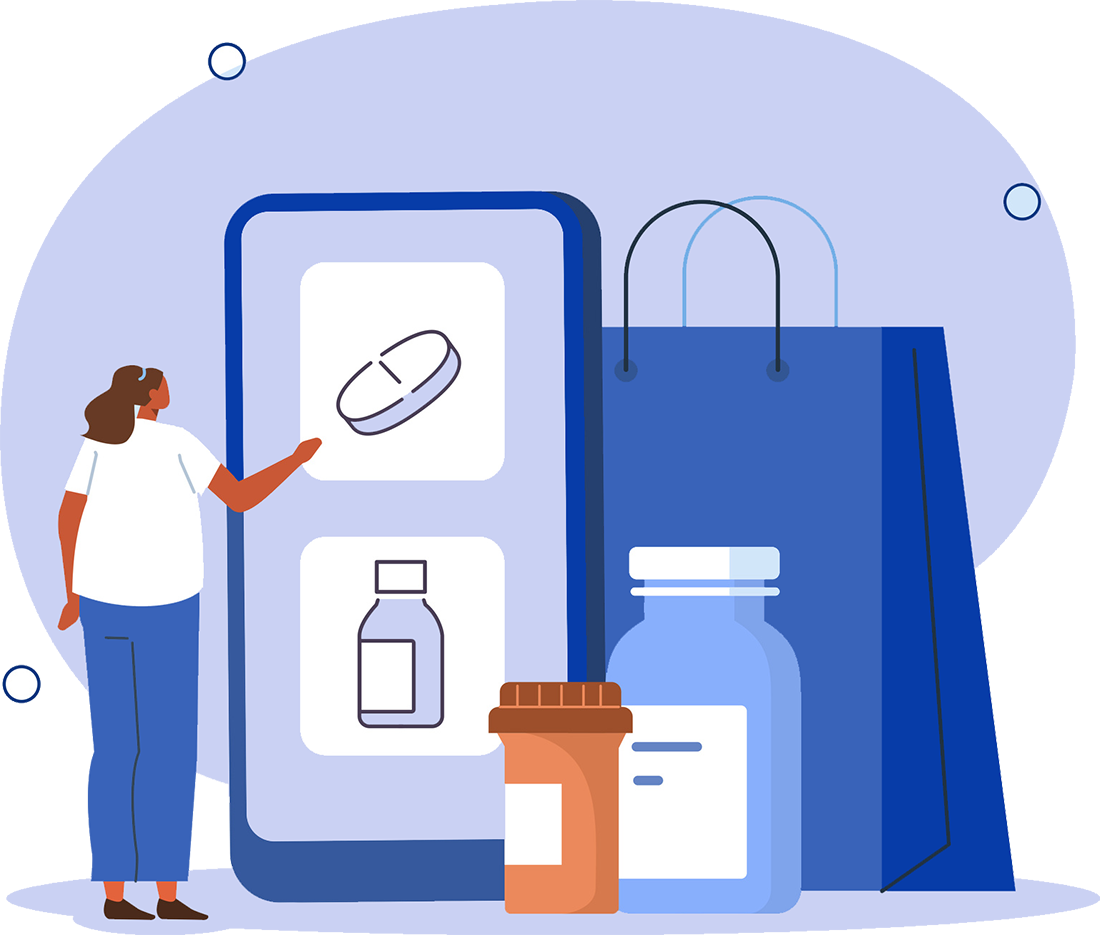The rise in substance misuse-related ER visits and overdose deaths in the U.S. is largely driven by synthetic opioids. Nearly 69,000 people died from opioid overdoses in 2020, and over 82% of those deaths involved synthetic opioids. In response to this growing crisis, a variety of treatment options have been developed to address opioid use disorders (OUD) and support long-term recovery.
One of the most effective and increasingly utilized approaches is opioid maintenance treatment (OMT), also known as medications for opioid use disorder (MOUD). These programs combine medications with counseling and behavioral therapies, offering a “whole-person” approach. Among the primary medications used in MOUD treatment is Suboxone, a powerful tool in reducing cravings, managing withdrawal symptoms, and helping people maintain sobriety.
Suboxone is a prescription medication approved by the U.S. Food and Drug Administration (FDA) to treat opioid addiction. It is a Schedule III controlled substance, available as tablets or sublingual film strips, and contains two main ingredients:
Together, buprenorphine and naloxone address both the physical and psychological aspects of opioid dependence. While buprenorphine eases withdrawal and cravings, naloxone works in the background as a deterrent against misuse, making Suboxone a comprehensive treatment option for OUD.
Suboxone works best when integrated into a comprehensive treatment plan that addresses all aspects of addiction, not just the physical dependence. However, it can still be effective on its own.
Initial Assessment
Your journey begins with a comprehensive evaluation by a qualified healthcare provider. During this initial assessment, you’ll discuss your medical history, substance use patterns, and any co-occurring mental health conditions. With this information, your provider can create a specialized treatment program for you.
Beginning Treatment
Once the assessment is complete and you have experienced at least 12 hours of opioid abstinence, you’ll be ready to begin treatment. Under the supervision of your healthcare provider, you’ll receive your first dose of Suboxone, typically in the form of a dissolvable film placed under the tongue or inside the cheek.
The induction phase is a critical step, as it helps alleviate the intense withdrawal symptoms associated with opioid cessation. Your provider will closely monitor your response to the medication and adjust the dosage accordingly, ensuring that you receive the optimal level of relief while minimizing any potential side effects.
Stabilization and Maintenance
After the initial induction phase, you’ll enter the stabilization and maintenance phase of your Suboxone treatment. During this stage, your healthcare provider will work with you to find the ideal dosage that effectively manages your cravings and withdrawal symptoms, allowing you to focus on the psychological and behavioral aspects of your recovery.
Regular follow-up appointments and counseling sessions will be an integral part of this phase. These sessions will provide you with the necessary support and guidance to develop healthy coping mechanisms, address underlying issues that may have contributed to your addiction, and build a strong foundation for long-term sobriety.
Tapering and Discontinuation Phase
As you progress through your recovery journey, your healthcare provider will closely monitor your progress and determine when it’s appropriate to begin tapering off Suboxone. This process involves gradually reducing your dosage over time, allowing your body to adjust and minimize the risk of relapse. This tapering process can take months or even years, depending on individual circumstances.
Tapering and discontinuation of Suboxone should never be attempted without the guidance of a medical professional. Abruptly stopping Suboxone treatment can lead to severe withdrawal symptoms and increase the likelihood of relapse.
Throughout this phase, you’ll continue to receive counseling and support to help you navigate the challenges that may arise and develop strategies for maintaining your sobriety after discontinuing the medication. As mentioned, many people find Suboxone crucial to maintaining stability and prefer to stay on the medication indefinitely.
Suboxone begins to work within 20-60 minutes of the first dose. The medication reaches peak level within two to three hours and blocks opioid receptors for at least 24 hours. However, this can differ from person to person based on factors such as:
For Suboxone to work effectively, the first dose must be taken during the acute withdrawal stage. Taking Suboxone before this stage may result in precipitated withdrawal. Precipitated withdrawal is a severe form of withdrawal caused by the abrupt removal of opioids from the receptors. This reaction triggers a sudden onset of withdrawal rather than a gradual one. Precipitated withdrawal is extremely painful and can increase the likelihood of a relapse. Thus, it is important to work closely with a Suboxone doctor to prevent such risks.
Suboxone typically remains in the system for 7-9 days, though this timeline can vary significantly among individuals. The medication’s presence in the body is primarily determined by its two active ingredients:
Detection times vary depending on the type of drug test used:
It’s important to note that standard drug tests typically screen for morphine-based opioids rather than Suboxone. Detecting Suboxone requires specialized testing methods.
Several factors can affect how long Suboxone remains in your system:
Understanding these detection windows and factors is crucial for anyone undergoing Suboxone treatment. If you have concerns about drug testing, discuss them with your healthcare provider to ensure your treatment plan aligns with any workplace or legal requirements you may have.
While Suboxone treatment is very successful at managing the physical aspects of opioid addiction, a comprehensive treatment approach also incorporates various complementary therapies to address the psychological and emotional components of recovery. This is why treatment programs usually include the following services on top of MAT:
Counseling and Therapy
Counseling sessions provide a safe and supportive environment for you to explore the underlying causes of your addiction, develop healthy coping mechanisms, and build a strong support network.
These sessions are facilitated by trained professionals who understand the unique challenges of addiction recovery and can guide you through the process with empathy and expertise. They often incorporate Cognitive-Behavioral Therapy (CBT), a widely recognized and effective approach in addiction therapy.
Peer Support Services
Peer support groups offer people in recovery a sense of community and shared understanding that no other form of treatment provides. It creates a safe space for individuals in recovery to share their experiences, offer encouragement, and learn from one another’s journeys. Peer support is usually available in group settings or in a one-on-one format, where you meet with a peer recovery specialist to discuss your progress, struggles, and needs.
Research consistently demonstrates that Suboxone is highly effective in treating opioid use disorder. When properly prescribed and taken as directed, Suboxone helps reduce cravings and prevent relapse while supporting long-term recovery.
Clinical studies have revealed several key benefits of Suboxone treatment:
Reduced Drug Use and Cravings
Better Treatment Outcomes
Enhanced Safety Profile
The effectiveness of Suboxone is particularly notable when combined with counseling and behavioral support services. This comprehensive approach has established Suboxone as a leading medication-assisted treatment option for opioid use disorder, helping thousands of people achieve and maintain recovery.
Online outpatient programs like Eleanor Health can help you start your recovery journey from the comfort of your own home, including your suboxone treatment.
Our suboxone program typically involves virtual consultations, medication delivery, and complementary remote counseling and peer support sessions. We also have in-person appointments available at select locations for patients who need that face-to-face support.
 Virtual Addiction Treatment: is it as Effective as In-Person Treatment?
Virtual Addiction Treatment: is it as Effective as In-Person Treatment?
 Methadone vs. Suboxone for Medication-Assisted Treatment: What’s the Difference?
Methadone vs. Suboxone for Medication-Assisted Treatment: What’s the Difference?
 Does Insurance Cover Online Rehab and Medication-Assisted Treatment?
Does Insurance Cover Online Rehab and Medication-Assisted Treatment?